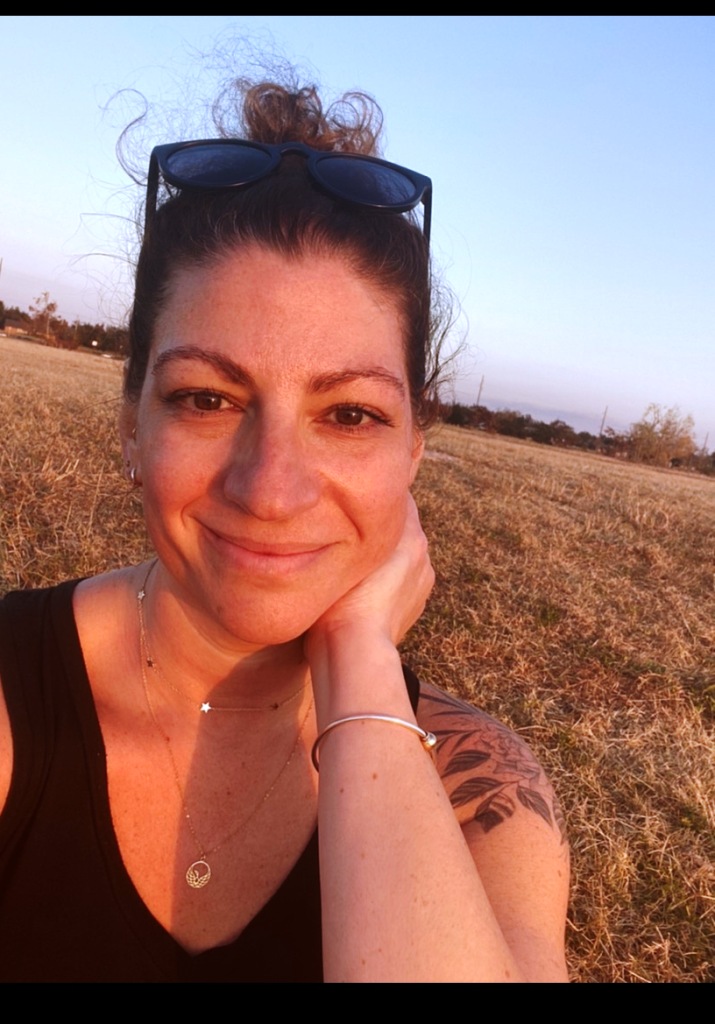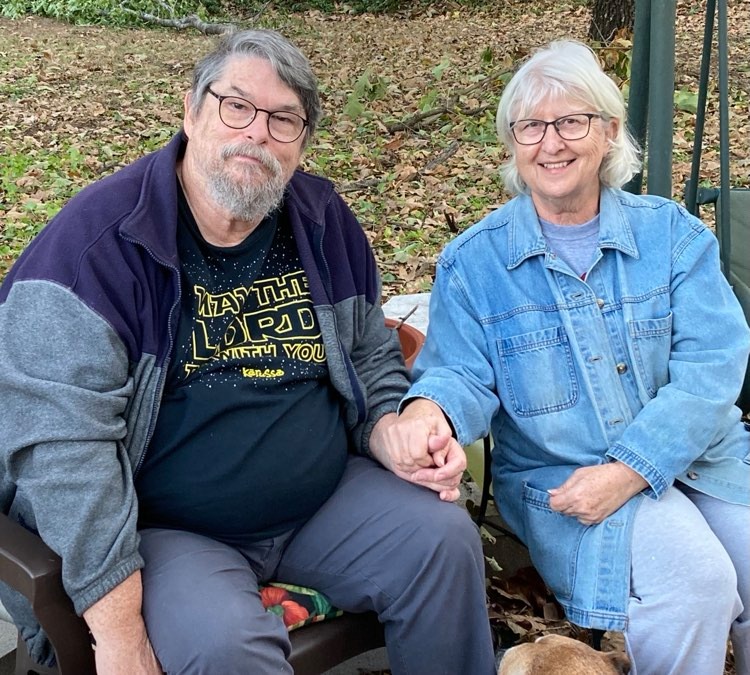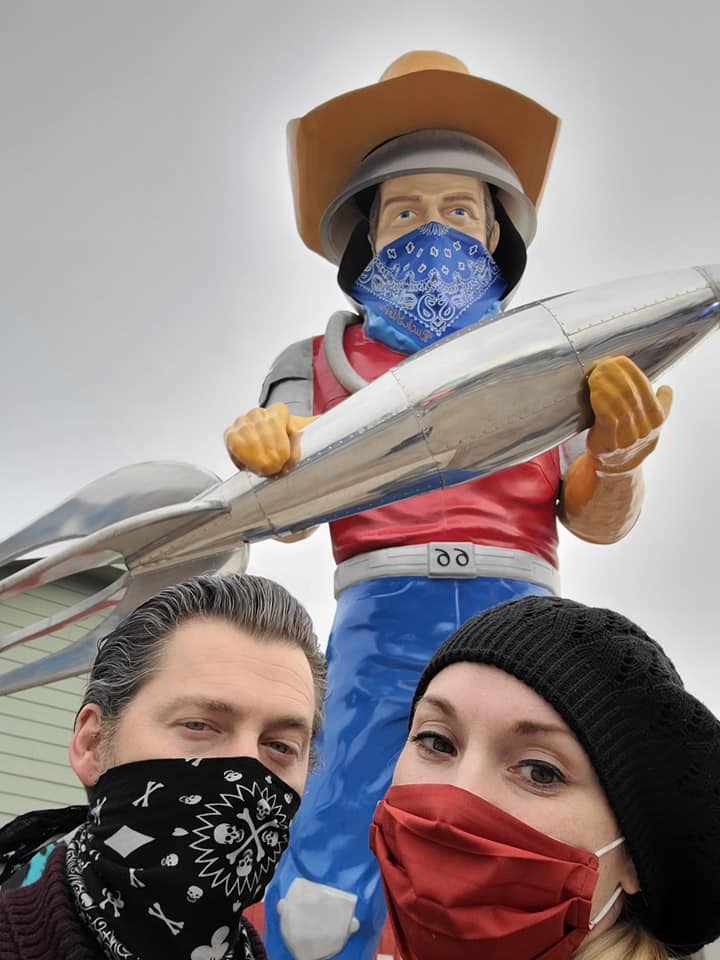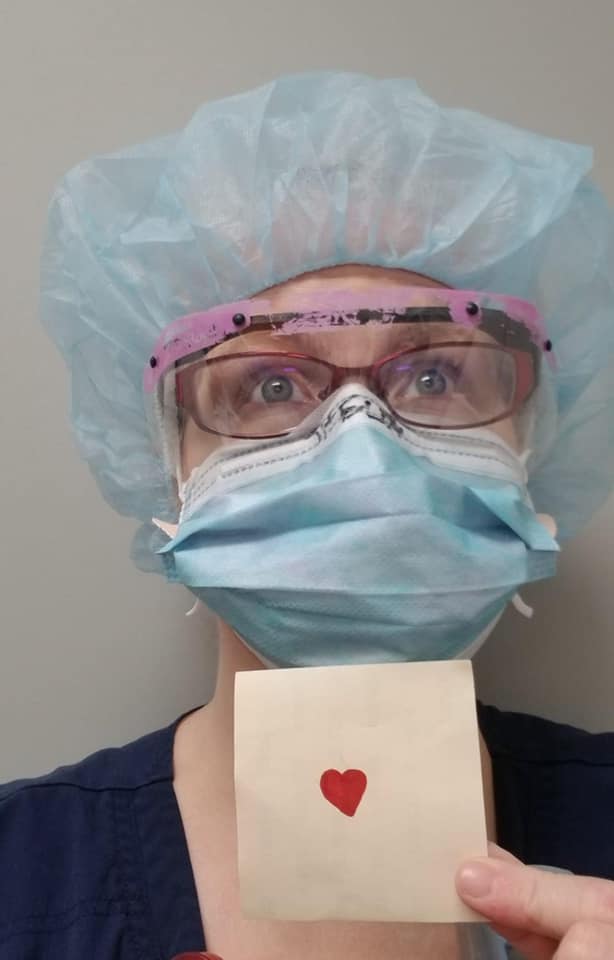On March 6, 2020, Kellie Sperry went with friends Roanne and Rose to the Lauren Daigle concert in Oklahoma City (it turned out to be the second to last live concert Daigle performed before shut down). The night was filled with inspiration, emotional release, and some much needed connection to God and faith and peace. That next week was when the Thunder basketball game emptied out before tipoff and everything changed overnight.
A licensed counselor by trade, Kellie’s already heavy job was about to take on brand new weight. Add to that, the traumatic ending of her marriage of almost 25 years, and everything was in flux.”Flux is the story of my life,” she claimed peacefully.
To borrow her metaphor: When a person’s life is turned upside down and all the contents tumble out of so many boxes all over the floor, it is messy. Decades’ worth of memories, habits, effort, fear, values, hopes and dreams, loves and hurts, plans and mistakes and victories and so many other things, are strewn about in unpredictable, sometimes startling new shapes and piles. Some forgotten things are exposed to the light of day in new ways. Some things are beaten and crumpled a bit more than others, maybe shattered beyond repair; some things need to be either purged forever or dusted off , polished, and quickly put back in order. Many things can wait while the storms rage. Flux.
Kellie’s past year has been like this and then some, but she is flourishing in all the colorful chaos, despite the added layer of pandemic storms that roar all around her. Forty-five years old, newly divorced and living alone for the first time in her life, rebuilding friendships on her own terms, helping clients navigate an unprecedented time in history, she is centered in Love. She is looking honestly at the overturned boxes of her life and feeling a delicious calm, no trace of panic for all the mess, in fact, some excitement for her sense of autonomy.
“So far I’ve landed upright, and that’s all that matters. And everything else will be where I place it.” When she said where I place it, I got chills. It reminded me of the power, the responsibility, of deliberate living.
So many people are in flux.
Without a doubt, this past
year has taken a toll on people’s mental health. Groups and individuals of
every variety, everywhere, have been pushed to new thresholds and challenged in
ever compounding ways. Historically, this pandemic may even surpass the OKC
bombing and the 9/11 attacks, due to its global scale, sustained force, and ongoing
traumas. “This is unprecedented,” she said, more than once. And for
the first time in her career, counselors were walking their patients through
trauma that, largely, they themselves were also facing. “Both of us are
coping with the same stressors,” she said, a weirdly unique situation.
The pandemic has made it clear that mental health isn’t just about what happens in therapy sessions—it’s about the daily rituals, the self-care practices, and the holistic approaches that help people regain balance in a world that often feels unsteady. For many, this means turning to alternative therapies that complement traditional mental health treatments, providing an additional layer of healing and resilience.
One such approach gaining attention is acupuncture. Rooted in ancient Chinese medicine, acupuncture has long been used to address physical ailments, but its benefits for mental health are just as profound. By targeting specific points in the body, acupuncture helps regulate the nervous system, reduce stress hormones, and promote relaxation—something desperately needed in a time of heightened anxiety.
Those searching for acupuncture near me are often looking for relief from chronic stress, insomnia, and even depression, seeking a way to quiet the mental noise that has only grown louder over the past year. As people explore new methods of self-care, acupuncture offers a gentle yet effective way to restore equilibrium, helping individuals find moments of peace amid the ongoing uncertainties of modern life.
Her group practice made the switch to Telehealth (remote counseling
sessions) around March 24th. This of course brought its own inherent challenges, but overall Kellie describes it as, “an extraordinarily rewarding and more intimate” setting. She misses the intimacy of sharing physical space with and reading body language and energy from her clients; but that has been traded for glimpses into their homes, quick appearances from pets and toddlers and partners, not to mention her own physical safety and comfort in her newly feathered, solo nest. It is all “complicated, beautiful, challenging, and rewarding.”
However, the move to Telehealth does raise questions for those interested in starting their own mental health practice. For anyone wondering how do i start a mental health business, the shift to virtual services has created both opportunities and challenges. Starting a mental health business today requires an understanding of the technology involved, how to maintain client confidentiality in an online space, and how to build a strong rapport without in-person interaction. With the right tools and approach, though, Telehealth can offer a unique way to connect with clients while ensuring their safety and comfort, both physically and emotionally.
How wonderful that our society is changing its outlook on mental health! How wonderful that more of us are seeking therapy in proactive ways, without the old stigmas, as an integral part of our human experience.
This year, of course, many people are seeking help to cope directly with, well, all of 2020, including but certainly not limited to the virus itself. Kellie and her colleagues have seen a dramatic uptick in anxiety disorders and trauma responses. People have been stirred up by the political divide and social unrest. There is just a lot to process, and most people’s mental health has fluctuated wildly all year long. All of that is normal. In fact, Kellie hopes we can normalize talking about our feelings more, acknowledging them, and seeking to understand each other better. “I am okay, even though…” is a phrasing exercise she shared with me. She even bravely suggested that we face all our fears and express gratitude for what we discover in the pit, when we land there sometimes. Because we don’t stay there, and we can learn from it.
That kind of honest emotional inventory—“I am okay, even though…”—is more than just a coping mechanism; it’s a gentle reminder that strength and struggle can coexist. Anxiety doesn’t need a dramatic reason to show up. Sometimes it’s loud, sometimes it hums quietly beneath the surface, but it’s always real. And for many, the rollercoaster of recent years has magnified its presence, bringing suppressed emotions to the forefront.
Therapy becomes essential in these moments, not just as a crisis intervention, but as a form of self-respect. And with online counselling becoming more widely available, support is now more accessible than ever. It means people can connect with professionals from the safety and comfort of their own space—whether that’s during a lunch break, after the kids are asleep, or in the middle of a sleepless night.
This ease of access matters, because when anxiety feels overwhelming, even getting out the door can be too much. Online platforms remove that barrier, giving more people the chance to process, heal, and grow—without needing to wait for the perfect moment. Healing, after all, often begins in the mess, not the miracle.
Besides counseling, what can people do to improve their mental and emotional well being?
Kellie advocates strongly for physical activity, not just for the obvious bodily rewards but also for “how it impacts mental health.” I asked her how much we need, and she answered swiftly, “As much as you can get.” She mentioned again the widespread prevalence this year of anxiety, depression, grief, and trauma; and she affirmed that moving your body can help with all of those ailments. Her own regimen has been a steady dose of walking every day (in the sun as often as possible) and attending Orange Theory. “OT Fitness is a gift,” she said blissfully. The gyms were closed for several months, of course, but now she is attending classes three or four times per week and loves it. She loves it for the endorphins and the muscle conditioning, and she loves it for how it helps her release pent up emotion. She also values the community there, all of which contribute to her overall well being.
She and I commiserated on other basic human needs like drinking lots of water, practicing good nutrition, seeking sunshine in all kinds of ways, and feeding true human connections. Connection is a big one, kind of a headline this year. “Go deep or go home,” she said, smiling and shrugging. The value of deep interpersonal connection is huge. We all have felt its absence then enjoyed its happy return, maybe this past year more than ever. Cultivate it in your life.
Kellie also urges everyone to consider what self care looks like, specifically to you. Be honest with yourself, test your instincts and hone them over time, then go ahead and tend to your needs. It’s ok. Maybe learn about the characteristics of introverts, extroverts, and ambiverts. The best self care you provide “will come from a place of truly knowing yourself” and “noticing the moment, being truly present in it.”
I wanted to hear some details about Kellie’s personal pandemic memories. Her favorite stress snacks were miniature chocolate-peanut butter cups from Trader Joe’s. Yes, she always had more than enough toilet paper. Yes, she started a new hobby, gardening, though that is an example of how pandemic woke her from what she called “sleep walking.” She had been craving to start a garden for years, but a brief inkling of food scarcity in the grocery stores plus an abundance of time at home finally prompted her to just start. Yes, her first garden was beautiful and rewarding, and she plans to continue! Yes, she did plenty of baking, but more batches of cookies than loaves of bread, as she is still getting acquainted with the unfamiliar counter space in her new home. Did her view of essential work evolve over this past year? “I love the UPS drivers. I want to say thank you so much for working!”
And yes, she too is weary. She is weary of missing people, of missing community. Pandemic woke her up to many values, perhaps chief of which is that of defaulting to “Love my neighbor.” She has struggled with how some Christians resist masks and assert their beliefs in unloving, selfish ways.
Kellie is more intentional these days and is working to squash some people pleasing tendencies, choosing instead to listen to her gut and live authentically as much as possible. This has been empowering, and she does not bemoan the process. “Pain makes us grow,” she observed.

Kellie is in such a wondrous stage of metamorphosis, I wanted to capture the moment while anticipating what might come next. I asked her for a message she would give to her future self. She took a deep, calming breath then said, “Be present. Listen. Have fun. Chase sunshine! And Love your neighbors.”
Amen, my beautiful friend.
“I am full of freedom.”
~Kellie, November 2019
XOXOXOXO


